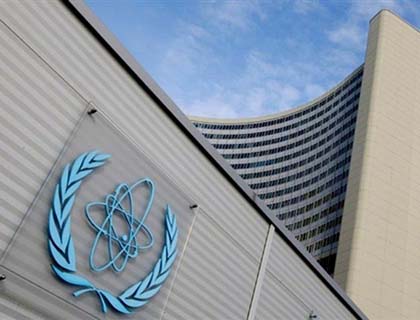VIENNA - The UN atomic agency wants to carry out at least one safety check mission in each country with nuclear power in the coming three years under proposals aimed at preventing any repeat of Japan's nuclear crisis. The draft document from the International Atomic Energy Agency, a revised version of a plan presented to IAEA member states this month, outlined a series of steps to help boost global nuclear safety after the Fukushima accident in March.
"The robust implementation of this action plan with full transparency will be of utmost importance and will represent a significant step forward in strengthening nuclear safety," the draft, obtained by Reuters on Tuesday, said.
The planned steps, aimed at ensuring nuclear plants can withstand extreme events such as the earthquake and tsunami that crippled Fukushima may prove sensitive for states which want to keep safety an issue strictly for national authorities.
But they may disappoint those who have advocated binding international rules. Russia, for example, has proposed restrictions on building reactors in earthquake-prone areas.
"This is middle ground," one European diplomat said about the draft. "It is still not the most ambitious of documents."
On the key issue of international safety inspections the text was amended, following feedback from member state diplomats last week, to spell out that all IAEA states with nuclear power programs would host such expert missions.
Today, some 29 states have nuclear energy, with most reactors in the United States, France, Japan and Russia. There are some 440 operating nuclear reactors in the world.
Iran, which denies Western accusations it is seeking to develop nuclear weapons capability, says it will soon start up its first nuclear power plant, at Bushehr on its Gulf coast.
The new IAEA draft said that each member state with nuclear power plants would "host at least one IAEA Operational Safety Review Team (OSART) mission during the coming three years, with the initial focus on older nuclear power plants."
The previous version said the U.N. body would organize safety reviews of one power unit in ten over three years, without specifying that all nuclear states would be covered.
Extreme natural hazards
IAEA Director General Yukiya Amano told Reuters last week he hoped the agency's annual member state gathering would endorse the action plan next month, adding it would help lead to a "steady improvement" in worldwide safety standards.
While stressing that atomic energy safety was primarily a national responsibility, the action plan signaled a strengthened role for the IAEA and its expert missions to review compliance with international reactor and regulatory standards.
The Vienna-based agency would conduct assessments every ten years of national regulatory bodies, it said, an apparent bid to make sure they were sufficiently independent and resourced.
Japan's crisis has prompted a rethink of energy policy worldwide, underlined by Germany's decision to close all its reactors by 2022 and Italy's vote to ban nuclear for decades.
Three reactors at the Japanese complex went into meltdown when power and cooling functions failed, causing radiation leakage and forcing the evacuation of some 80,000 people.
Japanese officials have come under fire for their handling of the emergency and the authorities have admitted that lax standards and poor oversight contributed to the accident.
There are no mandatory, international nuclear safety regulations now, only IAEA recommendations which national regulators are in charge of enforcing. The U.N. agency conducts review missions, but only at a member state's invitation.
The draft action plan said member states would "commit to periodically invite (IAEA) peer reviews" of reactor safety and emergency preparedness.
Domestically, authorities would "promptly undertake a national assessment of safety margins against extreme natural hazards for nuclear power plants ... and to implement the necessary corrective actions in a timely manner. (Reuters)

